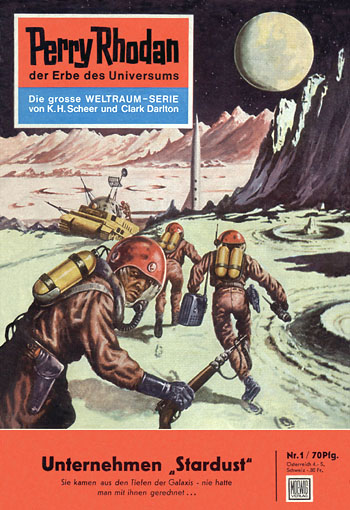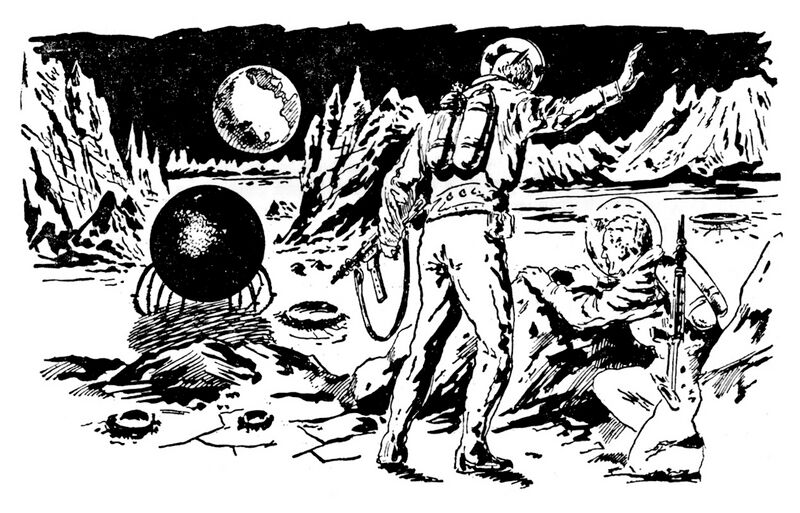Hi everyone. I'm travelling at the moment, so I'm afraid I won't have much chance to respond to comments for a while, but as promised here's the start of Part II of...
Part II Post #1: Teaser II
US Army Corporal Paul Roesen sipped contentedly at his coffee as he enjoyed the sunshine on this mild Spring morning. All things told, Berlin wasn’t the worst posting he’d ever had. Normally stationed in the tiny Stars and Stripes field office adjacent to the Armed Forces Network Berlin at Podbielskiallee in the American Zone, part of his duties were to provide a review of what the German papers were reporting on, including those published in the East. Which meant that each morning he got his coffee and cake paid for by Uncle Sam at the ornate Karl-Marx Cafe on Unter den Linden in the Free Zone, reading
Neues Deutschland and
Berliner Zeitung along with
Die Zeit,
Frankfurter Allgemeine and, of course,
Bild.
Roesen took a moment to enjoy the scene before ploughing through the pile before him. From his table he could see the girls (mostly West Berliners, judging by their fashionable clothes and heavy make-up) strolling past the checkpoint at the Brandenburg Gate and through to Pariser Platz, perhaps like him intending to enjoy breakfast at the cheaper, DDR-subsidised prices available in the Free Zone. Opposite stood the imposing bulk of the Soviet Embassy, whilst looking towards the East, Roesen could just make out the guard towers and gates at Schlossbrücke. They marked the end of the Soviet-sponsored “Berliner Frier Stadt Sector”, beyond which lay East Berlin proper. The long lines of wire fences and guard towers running along the banks of the Spree, forming what the DDR government had euphemistically named the “Anti-Fascist Control Barrier” were hidden from Roesen’s view. The newly rebuilt facade of stores and hotels kept the Line out of sight, if not out of mind. Those East Berliners Roesen could see, including the waiter who’d served him, would all be in that ten percent of the Eastern population considered “Politically Reliable” by the Ulbricht regime. Hardly any of them were under the age of thirty, and likely most of them would have families and dependants behind the Line who could not easily be left behind. Otherwise they would never have been permitted to work in the Socialist Bloc showcase that was the Free Zone.
Taking another sip of coffee, Roesen looked back down at the papers on the table in front of him, a mixture of East papers and Western publications he’d picked up on his way to the cafe. As all the official newspapers of the DDR followed the same Party line, it was usually sufficient to read one then just skim the rest. Today’s editions were no different, all carrying the same stories: Ulbricht is planning a state visit to Czechoslovakia; The Ministry of Finance projects the DDR economy will out-perform the BDR by 1970; Castro denounces the US for supplying weapons to counter-revolutionaries - usual stuff. The West German papers were all about the latest scandal to hit Adenauer's ailing government, with claims that Defence Minister Strauss had accepted bribes from a Canadian aerospace company in return for ordering their fighter jets. Strauss had managed to shrug off previous accusations of bribe-taking over the Fibag affair, but to Roesen this new scandal looked to be a lot more serious. He shook his head. Why couldn’t the Canadians compete fairly on a level playing field, like American companies did?
In international news, there was a depressing piece in Die Zeit about the race riots back in the US, with the paper reporting that Nixon was calling on all levels of government to enforce desegregation, whilst Humphrey deplored his inactivity and Wallace threatened to deploy the National Guard in Alabama. It ran alongside a story that the US was considering increasing military aid to the new government in Saigon, whilst reassuring the world that the weapons being sent were purely defensive and reiterating that there was no chance of major American forces being deployed against the Viet-Cong in combat roles.
One story that appeared in both sets of papers was a piece about yesterday’s returning Soviet space mission. Even considering the East German papers’ tendency to embellish Soviet achievements with hyperbole, there was no denying that the USSR’s recent space exploits were impressive. Sure enough, when Roesen checked the West German papers, they too were full of praise for the achievement. When, they asked, would the US again be able to match the Communists in space? Roesen wondered the same thing. He was fascinated by all this Buck Rogers stuff and had been following the Mercury flights and Dynasoar tests along with everyone else over the past year, but it looked to him like the Air Force was dropping the ball and letting the Reds pull ahead.
The story about space reminded Roesen of the curious little booklet he’d picked up in the American Sector along with the West German papers. After jotted down a few notes to wire back to the S&S head office in Darmstadt and ordering another coffee, he pulled the booklet out from under the pile of papers and took a closer look. It was digest-sized and featured a painting of a group of astronauts on some alien planet (no, that would be the Moon - the Earth was clearly visible in the background), running towards a rocketship. It was that picture that had caught his eye in the newsagents. Opening the magazine, Roesen was slightly disappointed to find no other illustrations inside, but as he began to read the German text he found himself becoming more and more engrossed. The tale of an American expedition to the Moon discovering an alien spaceship had him hooked. His half finished second cup of coffee was cold by the time he put the magazine back down and signalled to the waiter he was ready for the check.
The waiter was delighted when Roesen not only paid with West Marks (officially 1:1 with East Marks; unofficially more like 5:1), but also absentmindedly added a ridiculous tip to the total. Roesen barely heard the heartfelt “Dankeschön!” from the waiter; he was still in the world of spaceships and aliens.
I wonder if there’s an English translation I can send to my nephew? he thought to himself as he stood to leave.
If there isn’t, maybe I should translate it myself. I’m sure he’d get a kick out of reading the adventures of this “Perry Rhodan” character…
The centre of Berlin after the Crisis of 1961. The Soviet-controlled “Free City Zone” acts as a buffer between the Eastern and Western Zones. “The Line”, a militarised barrier of wire and concrete, prevents unauthorised passage between the Free Zone and DDR-controlled East Berlin.




